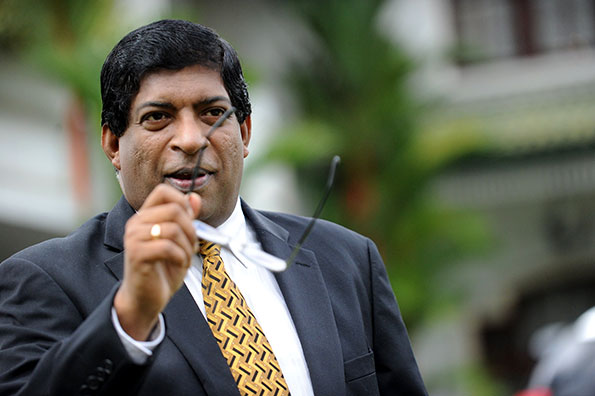Budget 2017 will benefit all: Finance Minister

Finance Minister Ravi Karunanayake will present the third budget of the national unity government in Parliament tomorrow.
This will be the 70th Budget of an independent Sri Lanka.
Minister of Finance Ravi Karunanayake said Budget 2017 would be a pro-growth budget that will focus on fixing the deficiencies of the last several years.
“It will be a real overview and will overlook all of the sectors of the economy that is beneficial to the people in the short run and long run,” the minister said in summary.
The minister said the economy he inherited was not easy to manage because of public debt exceeding Rs 9.9 trillion, in addition to a Rs. 1.2 trillion debt off the balance sheet.
However, with strict financial discipline, the government will be able to reduce the budget deficit, he said.
Minister Karunanayake said that the government was targetting a fiscal deficit of 3.5 percent of GDP by 2020. He said the government had planned to reduce it to 4.7 percent the next year from a targeted 5.4 Percent in 2016.
The value of the GDP has increased to Rs. 11,183 Billion (US$ 82.3 ) in 2015 from Rs. 6,414 Billion (US$ 56.7B) in 2010, the Government Information Department said.
It said Sri Lanka’s expenditure chain had included a sizeable portion to social welfare and subsidies, and that next year’s budget would allocate around Rs. 380 billion to welfare and subsidies.
Once the Budget is presented in the Parliament tomorrow, the debate on the second reading and the committee stage will continue till December 10.
(Daily News)

Latest Headlines in Sri Lanka
- Ranil Wickremesinghe summoned over 2016 fixed deposit withdrawal case April 11, 2025
- Trade War: China raises tariffs to 125% in response to Trump’s 145% tariff hike April 11, 2025
- IMF praises Sri Lanka’s economic recovery, urges continued reforms April 11, 2025
- Sri Lanka Police launch instant traffic fine payments via GovPay April 11, 2025
- Police officer rescues young woman from Mahaweli river April 11, 2025



Let’s hope so. Miracles happens.
The people who contribute to the GDP are the masses who toil from dawn to dusk to provide the urban population with their daily vegetables those who break their backs hauling their produce and the those ho tap the rubber, pluck the tea and the nuts and the thousands who work for Abans keeping the streets clean and the vendors who keep those who run cafes. The problem for those who determine the fiscal policy is that they cannot find a way through which they can be taxed even they they don’t fall into the tax brackets for their annual income fall below the threshold of liability. So the best way is to impose a vat thereby generate the revenue to pay the pensions service the pay of the tens of thousands who work for the government.
This in fact is levy of a 15 percent tax on a population that cannot afford it to subsidize the pay of an army of politicians ther5 families and dependents. I am not sure as to the thresh hold for a tax liability but I think is it something in the order of about a million rupees and compare it with those earning about 240000 rs
why not tax the government servants who includes our representatives in parliament who earn more than Rs 50000 per month similar to the private sector then are direct tax which is about 30 % will grow to over 70 % as a average government servant earns over Rs. 70000 per month and then VAT can be reduced to Below 20% and we can have a surplus budget